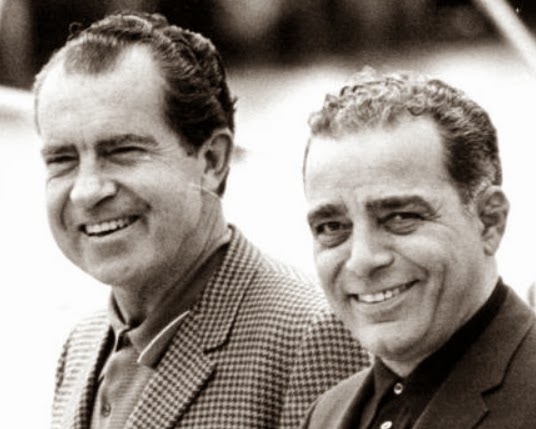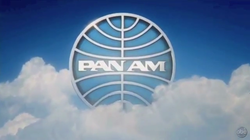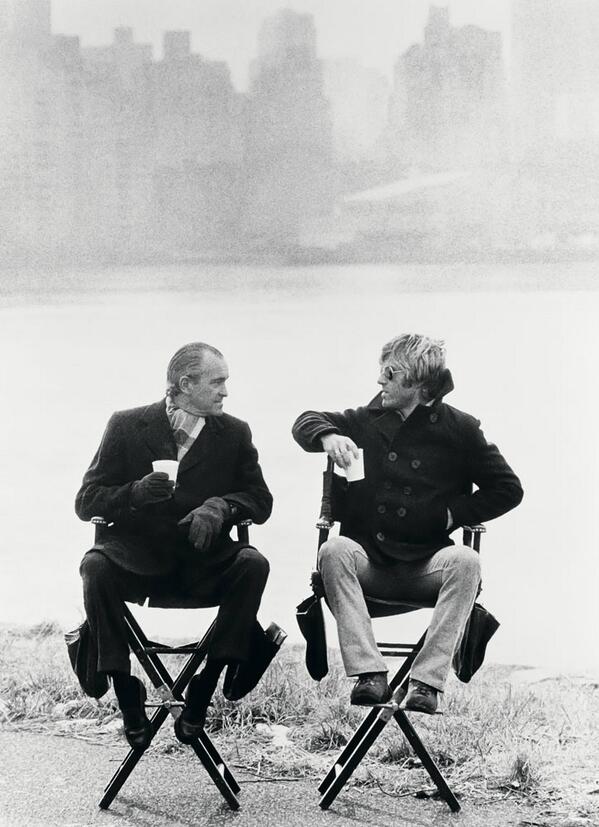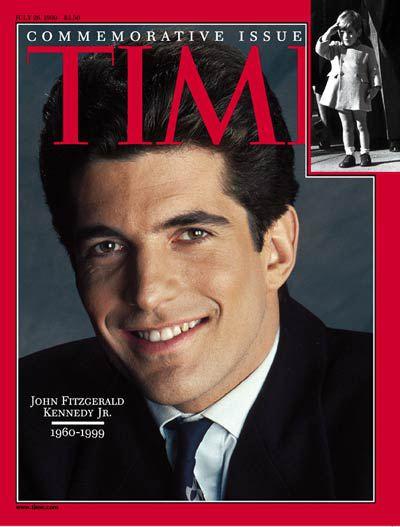MinM
MinM's JournalJoseph & Stewart Alsop
Alsop is an interesting case that Bernstein brings up. In an otherwise excellent piece from NPR's On the Media that was posted previously, Alsop's brother Stewart is given a free pass for dubious reporting ..
[font color=darkred]JOHN F. KENNEDY:[/font] We will not prematurely or unnecessarily risk the course of worldwide nuclear war in which even the fruits of victory would be ashes in our mouth. But neither will we shrink from that risk at any time it must be faced. [END CLIP]
[font color=green]BOB GARFIELD:[/font] Major players in the Cuban Missile Crisis, including then presidential speech writer Ted Sorensen and former Defense Secretary Robert McNamara, have tried in recent years to correct the record of those events, but the national myth seems pretty much unshakable. Fred Kaplan, Slate columnist and, incidentally, Brooke’s husband, has examined all the declassified material related to that crisis as it’s emerged over the years. We asked him to take us through the various drafts of the Cuba showdown.
[font color=blue]FRED KAPLAN:[/font] The basic scenario came from an article published shortly after the crisis by Stewart Alsop who was a very establishment columnist of the day who got the information from aides to Kennedy in the White House who were authorized by Kennedy to give him this account. Eyeball to eyeball with the Russians, crazy generals, on one hand, wanting us to bomb the missiles right away, lunatic doves like Stevenson, on the other, wanting to negotiate their way out of it from the beginning and, you know, smart guys like Kennedy and McNamara and Bundy navigating a, a cool and calm course through the thickets and ending us up safe to shore.
[font color=green]BOB GARFIELD:[/font] That's a heroic and reassuring recounting of the events, and it's certainly not the first nor the last time that a journalist has run with leaked information, but do you think Alsop had any way to know that the story he was writing did not, in fact, reflect the events as we now know them?
[font color=blue]FRED KAPLAN:[/font] No, I don't think he had any way of knowing that. This is what people told him and he certainly wasn't privy to any of the inside stuff going on. And, in fact, this was confirmed in the second draft of history, the memoirs written by two of what could be called the palace historians, Arthur Schlesinger and Ted Sorensen, Sorensen being Kennedy's speechwriter at the time who was present at all of the — what they called the ex-con meetings, the meetings of the Executive Committee of the National Security Council which got together for the 13 Days and deliberated what to do. And this basically told the same story, though with more detail...
http://www.onthemedia.org/story/132896-missile-crisis-memories/transcript/
http://www.democraticunderground.com/10021414805#post12
http://spartacus-educational.com/NDstewart_alsop.htm
http://spartacus-educational.com/JFKalsop.htm
Catch-22
JFK probably would have lived longer had he not tried to push so hard for peace. Then again if he had not pushed back against those who had a death wish for the world there never would have been events like this speech for others to aspire..
Of course the same was probably true for many brave souls throughout history. Just in the past fifty years since Kennedy we've had Martin Luther King Jr., Anwar Sadat, Yatzhik Rabin, and Benazir Bhutto just to name a few.
Bebe Rebozo and his Pan American Airways Peeps
Interesting piece here ..
Marvin Miller, Compiler (Therapy Productions, Inc.©1975); LCCCN
BEBE THE BAGMAN
Secret Manipulations of President's Crony Still Pose Question Mark

To those of an inquiring turn of mind, it may seem odd that these two men from such radically different milieus—the earnest young Quaker lawyer and politician from rural Southern California [Richard M. Nixon], and the self‑made Cuban‑American businessman on Florida's Gold Coast [Charles G. Rebozo]—should have become friends in the first place, and soon become so close. Just who is Bebe Rebozo and what is his background? ...
http://quixoticjoust.blogspot.com/2014/07/bebe-rebozo-and-his-pan-american.html

BTW a little bit of entertainment trivia .. the short-lived television series Pan Am dealt with using airline employees as intelligence assets.
Nixon talks about getting kickbacks from the Teamsters
in the piece too. Of course Reagan ended up getting support from the Teamsters also.
Wonder what kind of quid pro quo that could have been?
BTW were you aware of any other Nixon Mob ties?
![]()
***
Ronald Reagan wasn't qualified to be governor, let alone president. James Garner
@SpyTalker: William E. #Colby: The Gray Man
‘Shadow Warrior,’ by Randall B. Woods
By EVAN THOMAS
Published: May 3, 2013

William E. Colby, right, with another former director of central intelligence, George H. W. Bush, in 1978.
During the Vietnam War, Bill Colby of the Central Intelligence Agency ran the Phoenix program, which set out to “neutralize” the Viet Cong by capturing or killing them. In 1972, when Colby came home to a nation that had turned against the war, his face began appearing around Washington on “Wanted” posters. He was jeered on the street and peppered with death threats. Every day at 5 a.m., he was awakened at home by the same crank caller, accosting him as a murderer and a war criminal. Colby did not bother to get his home number changed. Instead, he began to use the predawn call as an alarm clock...
In “Shadow Warrior,” we get the occasional glimpse of emotion. When one of his young sons began arguing with him about the morality of the Vietnam War, Colby became “red-faced,” the son recalled, and “shouted that war was brutal — it brutalized everyone who came into contact with it — but sometimes there was no alternative. He himself, he admitted, had killed men in war, even with his bare hands.” But such moments of self-revelation are fleeting. Mostly Colby presented himself as Galahad in a fallen world, a modest knight to be sure, but bent on finding the grail amid sin and corruption. “He was a man who could distinguish between illusion and reality,” Woods, a professor of history at the University of Arkansas, writes. “Or so he convinced himself.”
In 1954, President Eisenhower commissioned Gen. James Doolittle to write a secret report on the state of American intelligence. Faced with an “implacable enemy,” the report found, the West would have, in effect, to fight fire with fire. Fair play was out: dirty tricks were in.
The realpolitik of the cold war raised an ancient philosophical question: If you adopt the underhanded tactics of the enemy, if you stoop to his level, do you become like him? Colby does not seem to have been troubled by the problem. He did not become a drunk or turn half-mad like so many spies and spy chasers of that tortured time, most notably James Jesus Angleton, the head of counterintelligence, who was Colby’s antagonist at the C.I.A. Colby was always rather a Boy Scout (indeed, he led a Boy Scout troop when he was at home on the weekends, and worshiped at the Church of the Little Flower). ...
http://www.nytimes.com/2013/05/05/books/review/shadow-warrior-by-randall-b-woods.html
http://www.democraticunderground.com/101662579
Another interesting side note is that the late Michael Hastings makes a passing reference to the Phoenix Program in his posthumously published novel The Last Magazine.

William Colby stipulated to "foreign assassination plots"
Jimmy Hoffa and the Church Committee
A little off topic here but it was interesting last night that PBS' History Detectives investigation concluded that Hoffa was killed to prevent him from testifying to the Church Committee.
Ostensibly to keep him from spilling the beans any further about Russell Bufalino's (Philly/NY mob boss) ties to the CIA. Sam Giancana and Johnny Roselli were silenced in the Summer of 75 too (apparently for the same reason).
Amazing opening sequence ..
 :large
:large
Former CIA Director Richard Helms w/Robert Redford .. served as an advisor on 3 Days
Kill the Messenger (2014)
Given that good journalism tends to be in the eye of the beholder and views on what qualifies tends to differ wildly (even within the DU 'family').
It's worth noting that Gary Webb, who was once widely denounced, will now be immortalized on film:
http://www.democraticunderground.com/10025272048#post68
Ex-L.A. Times Writer Apologizes for "Tawdry" Attacks on Gary Webb
By Nick Schou Thursday, May 30 2013

Nine years after investigative reporter Gary Webb committed suicide, Jesse Katz, a former Los Angeles Times reporter who played a leading role in ruining the controversial journalist's career, has publicly apologized — just weeks before shooting begins in Atlanta on Kill the Messenger, a film expected to reinstate Webb's reputation as an award-winning journalist dragged through the mud by disdainful, competing media outlets.
Webb made history, then quickly fell from grace, with his 20,000-word 1996 investigation, "Dark Alliance," in which the San Jose Mercury News reported that crack cocaine was being peddled in L.A.'s black ghettos to fund a CIA-backed proxy war carried out by contra rebels in Nicaragua...
No journalist played a more central role in the effort to obscure the facts Webb reported than former L.A. Times reporter Katz. But on May 22, Katz, who has penned a Los Angeles magazine story hitting newsstands now that resurfaces the Gary Webb episode, essentially apologized, on KPCC-FM 89.3's AirTalk With Larry Mantle.
Katz was discussing "Freeway Rick Is Dreaming" in the July 2013 issue of Los Angeles magazine, in which he profiles Ricky Ross, the notorious crack-cocaine dealer with whom Katz has a long, tortured relationship. In 1994, shortly after Ross got out of prison for coke trafficking, Katz wrote that Ross was the mastermind of America's crack-cocaine epidemic, at his peak pushing half a million rocks a day.
"If there was one outlaw capitalist most responsible for flooding Los Angeles' streets with mass-marketed cocaine, his name was 'Freeway' Rick," Katz's 1994 L.A. Times article claimed. "Ross did more than anyone else to democratize it, boosting volume, slashing prices and spreading disease on a scale never before conceived."
But Webb's 1996 Mercury News series exposed a startling fact: Ross' mentor and chief supplier, who helped him climb to the top of the crack trade, was Nicaraguan exile Oscar Danilo Blandón Reyes. Blandón belonged to one of Nicaragua's most prominent political families and was a major backer of the "contras" — a rebel movement secretly created by the CIA to overthrow the leftist Sandinista rebels...
http://www.laweekly.com/2013-05-30/news/gary-webb-jess-katz-crack/
SOS .. some of the same treatment that Gary Webb received. At least posthumously Gary Webb is getting some belated accolades ..
Keep up the good fight Octafish.
TIME: 15 years after JFK Jr.'s death, remembering what could have been
Fifteen years ago Wednesday, a shocked nation grieved as the Kennedy family lost another one of their own. John Fitzgerald Kennedy Jr., 38, died in a plane crash with his wife and sister-in-law on July 16, 1999.
“He was lost on that troubled night, but we will always wake for him, so that his time, which was not doubled but cut in half, will live forever in our memory and in our beguiled and broken hearts,” then-Sen. Ted Kennedy said in a eulogy for his nephew, an American icon turned magazine editor. Kennedy outlived his nephew by 10 years, passing away in 2009 after nearly a half-century in the U.S. Senate.
In that same eulogy, Kennedy praised the “lifelong mutual admiration society” shared between JFK Jr. and his sister Caroline, who now serves as the United State ambassador to Japan.
Kennedy was often asked whether he would further the political legacy of his father, who died when his son was only two years old. JFK Jr. once said of his father, “He inspired a lot of hope and created a sense of possibility, and then the possibility was cut short and never realized.”
Read TIME’s special 1999 cover story marking JFK Jr.’s death here.
http://time.com/2988210/jfk-jr-death-plane-crash-anniversary/

Profile Information
Member since: Mon Oct 8, 2007, 11:23 AMNumber of posts: 2,650